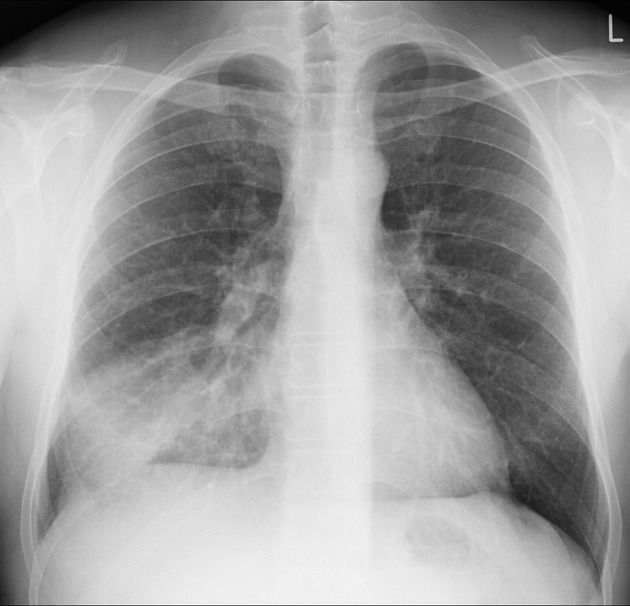Infections & Pneumonia: Protecting Your Lungs
Colds, coughs, and flu are part of life, but for some people, respiratory infections can be far more serious. Every winter, thousands are hospitalised with pneumonia, a lung infection that can be life-threatening — especially for older adults, young children, and those with existing health problems.
The lungs are designed to defend us, but infections can overwhelm them. In this article, we’ll explain how respiratory infections affect the lungs, what pneumonia really is, and how you can protect yourself and your loved ones.

Why Respiratory Infections Matter
Most of us recover from a cold or chest infection with rest, fluids, and time. But infections can sometimes spread deeper into the lungs, causing serious complications.
Respiratory infections:
Are among the leading causes of illness worldwide.
- Trigger flare-ups in conditions like asthma and COPD.
- Contribute to millions of missed school and work days every year.
- Can lead to long-term lung damage if severe or recurrent.

How Do Infections Affect the Lungs?
The lungs are lined with mucus and tiny hairs (cilia) that trap and sweep out germs. When bacteria or viruses overwhelm these defences:
- The airways become inflamed.
- Mucus production increases.
- Breathing becomes more difficult.
- In pneumonia, the air sacs (alveoli) fill with pus and fluid, making it hard for oxygen to enter the blood.
What Is Pneumonia?
Pneumonia is an infection of the lungs caused by bacteria, viruses, or fungi. It ranges from mild to life-threatening.
Common symptoms include:
- Persistent cough (sometimes with phlegm or blood).
- Fever, chills, or sweating.
- Shortness of breath.
- Chest pain that worsens with breathing or coughing.
- Extreme fatigue or confusion (especially in older people).
Pneumonia can affect anyone, but those at highest risk include:
- Adults over 65.
- Babies and young children.
- People with chronic conditions (asthma, COPD, diabetes, heart disease).
- People with weakened immune systems.

Types of Pneumonia
Community-acquired pneumonia (CAP)
- The most common type.
- Spread through coughs and sneezes.
Hospital-acquired pneumonia (HAP)
- Caught during hospital stays.
- Often caused by resistant bacteria.
Aspiration pneumonia
- Happens when food, drink, or vomit accidentally enters the lungs.
When to See a Doctor
Seek medical help urgently if you or someone you care for has:
- Difficulty breathing or rapid breathing.
- Chest pain.
- A cough lasting more than 3 weeks.
- High fever, confusion, or drowsiness.
- Bluish lips or fingertips.
Early treatment with antibiotics (for bacterial pneumonia) or antivirals (for flu-related infections) can prevent complications.
Preventing Infections and Pneumonia
The good news: there are many ways to lower your risk.
1. Vaccination
Flu vaccine: annual jab recommended for most people, especially at-risk groups.
Pneumococcal vaccine: protects against the most common bacterial cause of pneumonia; offered to children, older adults, and those with chronic conditions.
COVID-19 vaccine: helps prevent severe respiratory illness.
2. Hand and Respiratory Hygiene
- Wash hands regularly with soap and water.
- Use tissues to catch coughs and sneezes, then bin them.
- Avoid close contact with people who are unwell.

3. Lifestyle Measures
- Quit smoking: smoking damages the lungs’ defences.
- Exercise regularly: physical activity strengthens immunity.
- Eat well: a balanced diet rich in vitamins and antioxidants supports recovery.
- Sleep properly: poor sleep weakens immune function.
4. Protect the Vulnerable
If you care for children, older relatives, or people with chronic conditions, encourage vaccinations, monitor for early symptoms, and act quickly if they become unwell.
Infections and Chronic Lung Conditions
Respiratory infections can be particularly dangerous for people with asthma, COPD, or other chronic lung conditions. They can trigger flare-ups that require hospital care.
Tips for people with chronic lung conditions:
- Keep rescue medications (e.g., inhalers) close at hand.
- Follow your action plan if symptoms worsen.
- Get vaccinated every year.
- Contact your doctor early if infections hit your chest.
The Role of Antibiotics
Antibiotics save lives in bacterial pneumonia, but they don’t help with viral infections like the flu. Overuse of antibiotics contributes to antimicrobial resistance (AMR), which makes infections harder to treat.
Doctors prescribe antibiotics only when they are likely to help. Completing the full course is vital to prevent relapse and resistance.

Myths About Pneumonia
“Only old people get pneumonia.”
False. Anyone can get pneumonia, though risk increases with age.
“You always need antibiotics for pneumonia.”
False. Many cases are viral and don’t require antibiotics.
“If you’re fit and healthy, you don’t need the flu jab.”
False. Even healthy adults can develop severe flu or pass it to vulnerable people.
Key Takeaways
- Respiratory infections are common but can become serious, especially as pneumonia.
- Pneumonia causes cough, fever, breathlessness, and can be life-threatening.
- Vaccination, hygiene, and lifestyle choices are powerful tools for prevention.
- People with asthma, COPD, or weak immune systems are at highest risk.
- See a doctor early if breathing is difficult, symptoms worsen, or recovery is slow.
Book an appointment with Dr Aldik here..